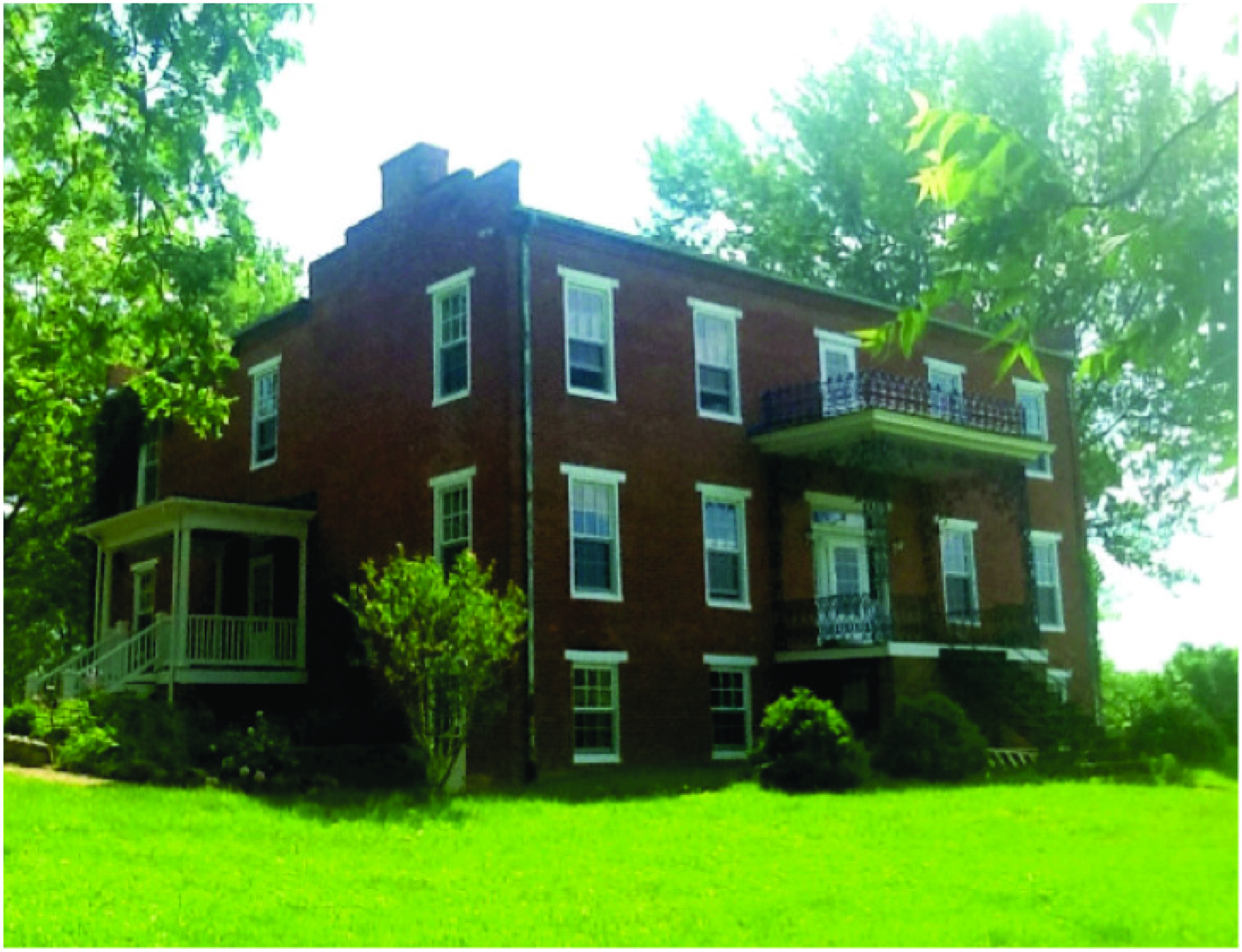Bank of Clarke County: 133 Years in Pictures
story and photos By Claire Stuart
In its 133 years, Bank of Clarke County has gone from horse-and-buggy days to mobile apps. Starting with a single branch, its twelfth branch opens in 2015 in Ashburn, Loudoun County. This fall, the bank unveiled a timeline photo display in the lobby of the Berryville branch, highlighting important people and events.
John Hudson, senior vice president and marketing director, sat down to talk about the bank’s history. Hudson, who has been with the bank for 31 years, was a shareholder before joining the bank’s staff.
He recalls, “I wasn’t with the bank in 1981, but when I read the annual report, I noticed that 100 years of history had been condensed into just a few pages.”
In 2003, Hudson was asked to write a history of the bank for its 125th anniversary. It took him three years to research and write, culminating in a fascinating and attractive hardcover book called Since 1881, generously illustrated with photos of people and historic documents. It was published in time for the shareholders’ meeting in 2006. Hudson credits the many people who assisted him, particularly Margaret Barthel, previously the bank’s official historian.
The story of Bank of Clarke County is actually the story of the area and three banks. The end of the Civil War wiped out the South’s banking system, which was based on confederate money. Clarke County had been a prosperous agricultural area before the War, growing wheat, corn and other grains, cattle, and fruit. There were mills, and there was mining and logging on the mountain. As the economy recovered and business returned to Clarke County, a bank was necessary.
In 1872, the Bank of Berryville came into being. Unfortunately, it was poorly managed and problems were found in the books. It was discovered that they were cashing checks for people with no money in the bank. The bank became insolvent and went into receivership, with Mr. Ammashaddi Moore, Jr., a local attorney, named as receiver. A cousin of Moore’s was president of Bank of Berryville. He refused to give the receiver the keys to the bank. Moore climbed through a window to take legal possession of the bank, and it closed in 1878.
Berryville was again left without a bank, with the nearest banks hours away by horse-and-buggy. By 1881, the necessary capital was raised to institute the Bank of Clarke County. Its first president was Ammashaddi Moore, Jr. The new bank had no physical home, so business was conducted through the office of the County Treasurer until a building could be raised.
A lot was purchased on Church Street and construction began. Hudson’s book gives an account of workers digging for the foundation and finding old human bones. Nobody knew of any burials there, so it was first assumed that the remains were those of American Indians. However, coffin nails found at the site contradicted that assumption, because Indians did not make coffins. It was later learned that the bones were probably remains of Revolutionary War soldiers, but nothing further is known as to what happened to the bones.
Construction was completed in December 1881, and Bank of Clarke County opened for business.
In 1887, disaster was averted, thanks to a local coachman, Anthony Cook. He had driven a group home from an event in the wee hours of the morning. As he returned the horses to their stable, Cook spotted fire coming from the bank and sounded the alarm. The fire had started in rooms rented to a club on the second floor, where a lighted cigar had been thrown into a spittoon full of sawdust.
The first robbery occurred in September of 1889, when burglars entered through a window. The valuables were locked in the vault, so the burglars ended up empty-handed except for a small gun they found. One robber had been barefoot, leaving muddy footprints, but the other left shoeprints.
In 1900, the bank got running water, and in 1903, its first telephone. It remained in the same location until 1906, when it bought the building on the corner of Church and Main.
Deposits dipped in 1914, when the wheat crop failed and an epidemic of hog cholera broke out. The disease was so widespread that the bank bought a supply of anti-hog cholera serum to keep on hand to sell to farmers. By 1919 agriculture was again strong.
A new bank in Boyce
In the early 20th Century, the town of Boyce was booming, says Hudson. Business flourished, the Boyce train station was a major stop, and southern Clarke County needed its own bank. An impressive Classical Revival building was constructed, and the independent Boyce State Bank opened in 1908.
The first robbery of Boyce State Bank came in September of 1926. Cashier Cornelius VanDeventer chased the robbers down the street with his cane but failed to catch them. They were apprehended three days later, and most of the money was recovered. The bank seemed to be a target for robbers over the years.
Hudson, a ninth-generation Clarke County native, grew up in Boyce and wrote a history of the town in 2010. He says he had a personal connection to the Boyce State Bank: his mother worked there from 1965 to 1981. “And she was robbed six times!” he added, the last time while he was a student at Boyce Elementary School.
The Bank of Clarke County weathered the Great Depression, while many banks failed. It remained solvent and was only closed when President Roosevelt’s forced “bank holidays” were instituted to prevent runs on banks. In 1934, the bank became a member of the F.D.I.C. and deposits were insured up to $5,000.
In 1935, Bank of Clarke added a second branch with the purchase of the Boyce State Bank, which was in good financial condition. The Boyce State Bank’s building was donated to the town of Boyce in 1987, and now houses the town hall. Bank of Clarke operated with two branches until 1992.
The digital age and new branches
The bank purchased its first computer system in 1983. A credit card program was launched in 1985. The first ATM was installed at the Berryville office in 1989. Online banking became available in 1999. Berryville’s first drive-through opened in 2003.
The first branch outside of Clarke County opened in Winchester in 1992. By 2010, there was a branch network in Winchester with seven locations. In 2010, the first Loudoun County branch opened in Round Hill, followed by another in Purcellville in 2013.
To Hudson, Bank of Clarke is a community bank with a three-county market. It has $600 million in assets. “As a community bank, we serve everyone from cradle to grave,” says Hudson. “And I like to say that we serve people even beyond the grave with the trust department!
“We want every customer to have everything they need, without trying to sell them something they don’t need,” he explains. “The type of service a 70-year-old wants differs from what a 20-year-old wants. We meet all age groups. Younger people want the electronic things. In the past 12 months, we’ve rolled out a mobile deposit app where you can take a picture of a check and deposit it.”
They now offer instant-issue debit cards. “In the past, you had to wait ten days after application to get a card in the mail. Now you get the card in the bank and can use it immediately. It’s safer, too. It can’t be lost or stolen in the mail.”
In the Bank of Clarke, says Hudson, priority is placed on the connection with customers—so that a person deals with another person, not just a bank. “You are never truly off as a banker in a town like this,” he says. “People stop and talk to you anywhere—on the street, in church, in the store. This still exists here in banking. I hope it never goes away.”
Hudson says that he is not what you would call a history buff, but he is interested in history to which he is connected. He urges everyone to talk about the past with family and those around them. “Don’t ever miss that opportunity. The loss of history is irreversible.”
Copies of John Hudson’s book Since 1881 are available at all Bank of Clarke branches for $20.















